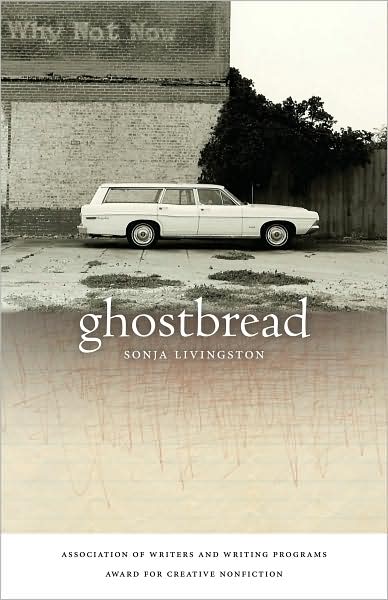“My mother had always swelled with promise, talked of milk and honey, but was hard to hold on to in the wind,” writes Sonja Livingston in her lyrical memoir.
Livingston’s mother was a slippery fish, consistent mostly in her incongruities. In the kitchen, she worked like a pastry chef, but neglected the food shopping. She held the Catholic anti-abortion stance as inviolate, but shrugged off the sacrament of marriage. She could draw horses so they galloped off the page and instructed her daughter, “Live free or die — I’m telling you girl, there’s no other way.”
Livingston came of age in a family of five sisters with five absentee fathers (and two brothers). Her mother, in the effort to stay afloat, moved from houses to motel rooms to apartments, if need be a tent on an Indian reservation. We might think of children growing up homeless and hungry as what happened a long time ago or in other countries, but Livingston proves these hardships endure today.
Like her mother, Livingston is prone to move on a moment’s notice. Ghostbread consists of 122 fly-by chapters, reading more like a series of connected lyric essays than a structured narrative. Anecdotes often begin in medias res and exit with a flirtatious closing of the door: That’s all for tonight, thanks. In less skilled hands, the effect of these transitions could come across as too coy or abrupt, but Ghostbread captures the adult struggle to remember, the snippets that come to us in the middle of the night.
Livingston also inherited her mother’s flair for the zinger, which she uses to great effect. Her sentences are sharp and clean: “I had no father, which sounds much more dramatic than it was”; “At school I learned to read and write and use spit in creative ways”; and “This was my secret: I could control the wind.”
Livingston is a wise memoirist, who remembers that children take their circumstances, be they miserable or wonderful, as a matter of course. Life isn’t grand retrospectives, but a series of moments — don’t ever forget that a girl’s soul can be bought and sold for a doughnut. Yet while children are calculating their private needs, they are oblivious to the greater picture. They don’t realize that “out west camping trips” generally take place in Yellowstone, not some backyard without plumbing. In these scenes, Livingston knows not to stand with a long, pointed finger, yelling, “See! See how messed up that was!”
As Livingston matures, so do her reflections, creating a sense of character transition. By the end, the retrospective adult is firmly in control, a wise woman with sage observations: “…girls will lie down with sweet-talkers—not because they are stupid or weak, but because they are human beings with hearts and heads and dreams, and above all, hunger….” I love that part because I have fallen for the same trap, despite growing up with loaves of Wonderbread in the pantry.
While reading Ghostbread, there is this feeling, at times, of licking the batter spoon in lieu of eating a nice slab of cake. As the memoir unfolds the reader might crave (probably much as Livingston did) a greater cast of consistent characters that develop over time. But Livingston’s method delivers a benefit that traditional narrative cannot; the reader experiences the miracle of Livingston’s escape from poverty. Hers was the crossing of a wild river, rock by mossy rock. Only by standing on the bank and looking back can we marvel that she ever made it at all.
—
Kelly Ferguson has a creative writing MFA from the University of Montana, and is working on a PhD in nonfiction at Ohio University. Her fiction and essays have appeared in The Gettysburg Reveiw, Mental Floss Magazine, Defenestration, and Poets & Writers.

